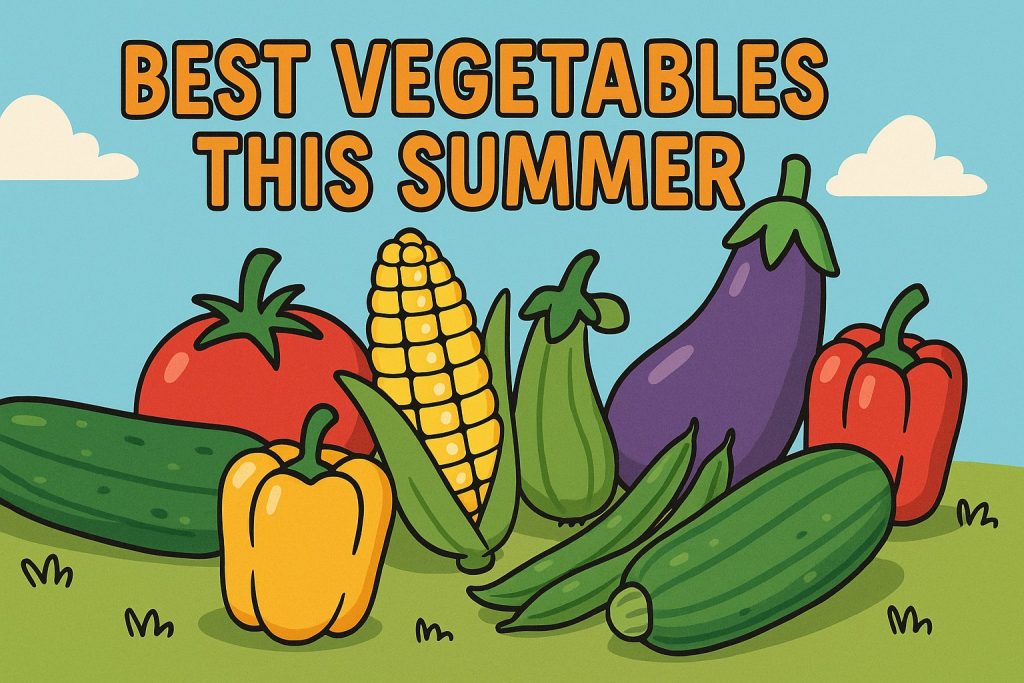During the summer months, fresh vegetables are not only more affordable but also reach their peak in flavor and nutrition. Including seasonal vegetables in your diet helps support local agriculture and ensures that you’re getting food packed with vitamins, minerals, and antioxidants. Let’s explore the best vegetables to eat this summer and why they deserve a spot on your plate.
Tomatoes: A Juicy Source of Nutrients
Tomatoes are a staple summer vegetable (technically a fruit, but treated as a vegetable in cooking). They are rich in lycopene, an antioxidant that may support heart health and protect against sun damage. Summer tomatoes are particularly sweet, making them perfect for salads, sauces, or just sliced with a bit of olive oil and salt. They also provide vitamin C, potassium, and folate.
Cucumbers: Hydration in Every Bite
Cucumbers are over 95% water, making them one of the best vegetables for staying hydrated in hot weather. They are low in calories but contain a decent amount of vitamin K, magnesium, and anti-inflammatory compounds. Use them in salads, cold soups, or simply as a crunchy snack.
Zucchini: A Versatile Summer Favorite
Zucchini is incredibly versatile: it can be grilled, sautéed, spiralized into noodles, or even baked into bread. It’s rich in vitamin A, manganese, and fiber, which aids digestion. Zucchini’s mild flavor pairs well with herbs and spices, making it easy to incorporate into a variety of dishes.
Bell Peppers: Colorful and Nutrient-Packed
Bell peppers come in vibrant colors—red, yellow, orange, and green. Each color has a slightly different flavor and nutrient profile, but all are high in vitamin C, vitamin B6, and antioxidants like beta-carotene. Raw or cooked, they’re a delicious way to boost your vegetable intake.
Green Beans: Crisp and Fresh
Fresh green beans are at their best during summer. They’re high in fiber, vitamin K, and folate, and they support bone health and healthy digestion. Lightly steamed or sautéed, they retain their crisp texture and bright flavor.
Eggplants: Rich and Satisfying
Eggplants, or aubergines, shine in dishes like ratatouille, moussaka, or grilled on their own. They’re a good source of antioxidants, especially nasunin, which is found in the purple skin and supports brain health. Eggplants are also rich in fiber and low in calories.
Corn: A Seasonal Treat
Although technically a grain, corn is often eaten as a vegetable in summer. It’s sweet, satisfying, and rich in carbohydrates, fiber, and B vitamins. Fresh corn on the cob is best enjoyed grilled or boiled and provides a sense of nostalgia and seasonal delight.
Glossary
- Seasonal vegetables – Vegetables that are harvested and available fresh during a specific time of the year.
- Lycopene – A powerful antioxidant found in tomatoes and other red fruits that may protect cells from damage.
- Vitamin K – A vitamin important for blood clotting and bone health.
- Fiber – A type of carbohydrate that aids in digestion and helps maintain healthy cholesterol levels.
- Antioxidants – Compounds that neutralize harmful molecules called free radicals, helping protect the body from damage.
- Nasunin – A specific antioxidant found in eggplants that may help protect brain cells.


